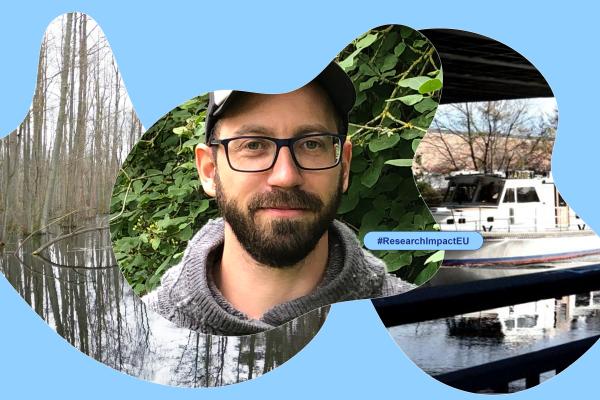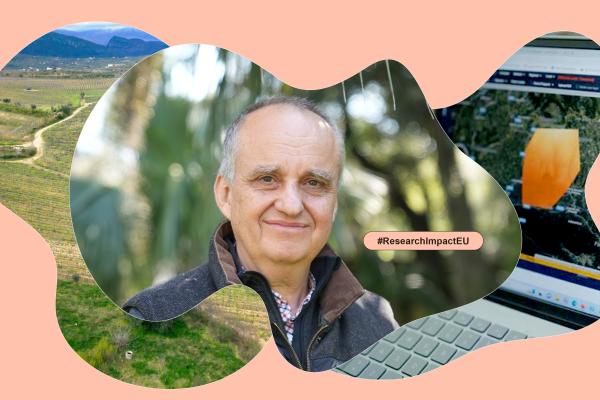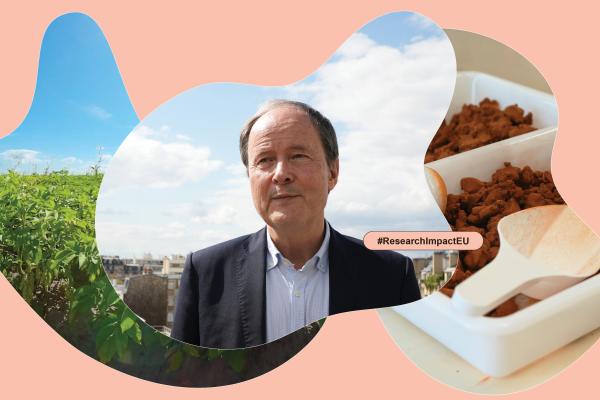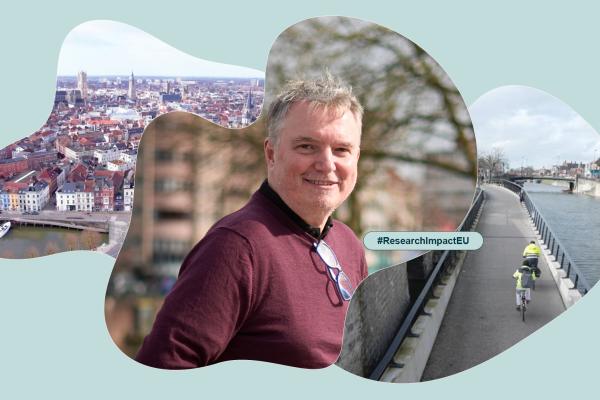On a mission to transform palliative healthcare
‘We are confident these digital tools work, they will improve the health services of the future’
With his colleagues at the Centre for Research and Technology Hellas in Thessaloniki, Natsiavas coordinated a pioneering initiative (the MyPal project) that has the potential to change the doctor–patient relationship forever – by using digital platforms to improve the quality of care, and therefore the quality of life, of those affected by cancer.
The delivery of high-quality medical care is not only about prescribing medication. Knowledge, as they say, is power; and how a patient is able to communicate with their doctor influences their well-being and the ability of doctors, in turn, to provide better care. Everyone deserves a long and healthy life, and patients and caregivers deserve support.
“We are still in the infancy of using digital technology in health, but this approach could be used for many chronic diseases, not just cancer.
Further trials to bring hard evidence
Over 200 adult and adolescent cancer patients in five EU countries (Czechia, Germany, Greece, Italy and Sweden) took part in clinical trials for a little more than two years, using an app they called MyPal, a digital tool that allows patients to communicate remotely to their doctors, educate themselves on their illness, report real-time updates on their health, and fill in questionnaires. Crucially, it gives doctors a fuller overview of a patient’s health status before they see them in person, resulting in more personalised and targeted care.
‘This is a great opportunity,’ enthuses Natsiavas. ‘We are still in the infancy of using digital technology in health, but this approach could be used for many chronic diseases, not just cancer. We need to conduct further clinical studies to have the hard evidence to present to governments so that they integrate this into health systems.’
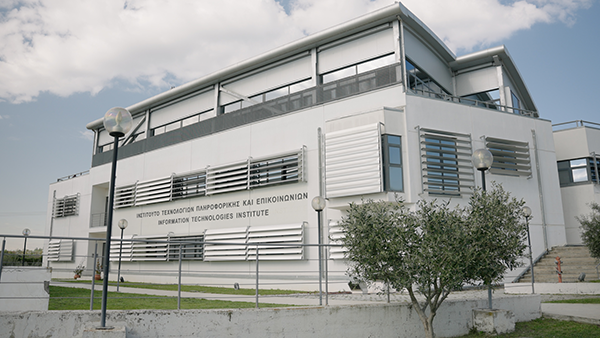
Dr Thomas Chatzikonstantinou witnessed the benefits of using the technology first hand – he treats cancer patients at the G. Papanikolaou General Hospital in Thessaloniki, one of two hospitals in Greece where clinical trials took place. He believes that a key attribute of the app was how it allowed physicians to detect issues with patients ahead of any face-to-face consultation.
‘It is a supplement to usual care, it doesn’t replace it,’ explains Chatzikonstantinou. ‘Usually we see patients every three months, and then only for 10 minutes. But with the app I could access the information immediately and use that to guide discussions with my patients.’
Being a repository of medical information, the app accumulates data on each patient and acts as a memory bank, allowing vital patterns to be identified via in-built statistical and analytical functions, and offering fast and comprehensive overviews of a patient’s health status. So it is not just a communication tool. It also addresses geographical imbalances by bringing an immediate healthcare solution to patients living in remote locations.
‘Many of the patients said that communication with their physicians improved through the trial,’ says Chatzikonstantinou. ‘From my perspective, a specialised app is crucial, because it gives you the whole picture, with all the information in one place. And rather than adding more work, it actually saves time, because much of your assessment is done before you see the patient.’
“European research and innovation in health is about working together across borders, sharing each other's knowledge and resources and improving our health and care systems together.
As a new mode for patients to interact with their healthcare teams, and for physicians to better serve those patients, the sky is the limit in terms of where this might go. The trials also strived to present a broader meaning of palliative care itself, which people often interpret narrowly as care people receive shortly before death, but which really covers multiple approaches to optimising support and quality of life for those with serious illness.
Natsiavas and his colleagues in Thessaloniki are already looking ahead to the next steps with their European partners. ‘We’ve proved that these tools have a real-world application,’ he says. ‘Now we want to extend the approach.’
European research and innovation in health is about working together across borders, sharing each other's knowledge and resources and improving our health and care systems together.
A close collaboration between policymakers, researchers, healthcare professionals and patients is a crucial building block.
Science, research and innovation: our secret ally
This research is part of the EU’s efforts to discover new ways to prepare for climate change, protect our oceans and waters, and fight cancer. Together, EU countries can work more effectively, by pooling funding and expertise from around the world, coordinating international efforts, and benefiting from local knowhow.
Thanks to EU investments, it is possible for international research collaboration to address challenges too big to be addressed by one country alone.
Join researchers on a mission to protect our planet and society, by sharing, liking and following the stories of #ResearchImpactEU.
Research and innovation for the European Green Deal
We are on a mission for 2030!
Explore the European Research and Innovation Exhibition where we showcase concrete solutions for our greatest challenges


